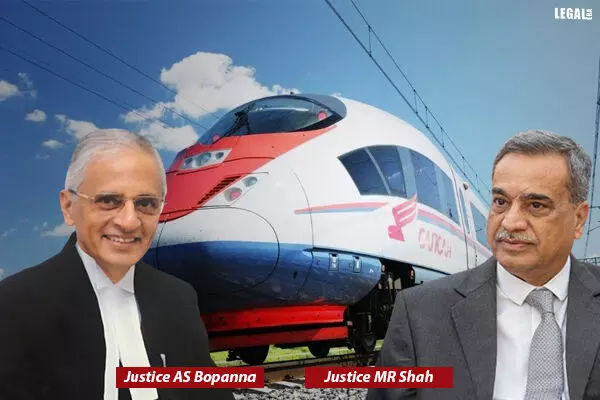- Home
- News
- Articles+
- Aerospace
- Artificial Intelligence
- Agriculture
- Alternate Dispute Resolution
- Arbitration & Mediation
- Banking and Finance
- Bankruptcy
- Book Review
- Bribery & Corruption
- Commercial Litigation
- Competition Law
- Conference Reports
- Consumer Products
- Contract
- Corporate Governance
- Corporate Law
- Covid-19
- Cryptocurrency
- Cybersecurity
- Data Protection
- Defence
- Digital Economy
- E-commerce
- Employment Law
- Energy and Natural Resources
- Entertainment and Sports Law
- Environmental Law
- Environmental, Social, and Governance
- Foreign Direct Investment
- Food and Beverage
- Gaming
- Health Care
- IBC Diaries
- In Focus
- Inclusion & Diversity
- Insurance Law
- Intellectual Property
- International Law
- IP & Tech Era
- Know the Law
- Labour Laws
- Law & Policy and Regulation
- Litigation
- Litigation Funding
- Manufacturing
- Mergers & Acquisitions
- NFTs
- Privacy
- Private Equity
- Project Finance
- Real Estate
- Risk and Compliance
- Student Corner
- Take On Board
- Tax
- Technology Media and Telecom
- Tributes
- Viewpoint
- Zoom In
- Law Firms
- In-House
- Rankings
- E-Magazine
- Legal Era TV
- Events
- Middle East
- Africa
- News
- Articles
- Aerospace
- Artificial Intelligence
- Agriculture
- Alternate Dispute Resolution
- Arbitration & Mediation
- Banking and Finance
- Bankruptcy
- Book Review
- Bribery & Corruption
- Commercial Litigation
- Competition Law
- Conference Reports
- Consumer Products
- Contract
- Corporate Governance
- Corporate Law
- Covid-19
- Cryptocurrency
- Cybersecurity
- Data Protection
- Defence
- Digital Economy
- E-commerce
- Employment Law
- Energy and Natural Resources
- Entertainment and Sports Law
- Environmental Law
- Environmental, Social, and Governance
- Foreign Direct Investment
- Food and Beverage
- Gaming
- Health Care
- IBC Diaries
- In Focus
- Inclusion & Diversity
- Insurance Law
- Intellectual Property
- International Law
- IP & Tech Era
- Know the Law
- Labour Laws
- Law & Policy and Regulation
- Litigation
- Litigation Funding
- Manufacturing
- Mergers & Acquisitions
- NFTs
- Privacy
- Private Equity
- Project Finance
- Real Estate
- Risk and Compliance
- Student Corner
- Take On Board
- Tax
- Technology Media and Telecom
- Tributes
- Viewpoint
- Zoom In
- Law Firms
- In-House
- Rankings
- E-Magazine
- Legal Era TV
- Events
- Middle East
- Africa
Supreme Court annuls Delhi High Court's order

Supreme Court annuls Delhi High Court's order
Prime Minister Narendra Modi had launched the Bullet Train Project in 2017 in partnership with Japan
The Supreme Court has set aside a judgment of the Delhi High Court, which had directed the National High-Speed Rail Corporation Limited (NHSRCL) to consider the bid of infrastructure company Montecarlo Limited. It pertained to the construction and development of a depot for the Mumbai-Ahmedabad Bullet Train Project.
A bench of Justice MR Shah and Justice AS Bopanna said that the project was of 'national importance' and rejected the August 2021 verdict of the high court.
NHSRCL had rejected Montecarlo's bid and awarded the contract to SCC-VRS (JV). Subsequently, Montecarlo had approached the high court contending that no reasons were assigned to it while rejecting its bid.
The top court held that the high court ought to have appreciated that the project was a result of the long-drawn deliberations between the Government of India and the Government of Japan.
It further observed that Japan had agreed to fund a huge amount for the project.
"A huge amount is funded by the developed nation to implement the project meant for the development of the developing nation – the Republic of India. The contracts are entered into and the huge sum is funded on the basis of non-negotiated terms and conditions and therefore, the foreign developed nation, who has agreed to invest/fund such a huge amount is always justified in insisting on their own terms and conditions on which such a huge amount is funded," the apex court held.
Dismissing the plea, the Supreme Court said, "The scope of judicial review in such foreign-funded contracts/projects would be restricted and minimal. In such contracts, the only ground for judicial review ought to be on a limited aspect, i.e., the action of the executing authority does not suffer from favoritism or nepotism and based on the grounds which have been concealed from the foreign financing authority, if disclosed, would have persuaded the financing authority to cancel the contract."
Prime Minister Narendra Modi had launched the Bullet Train Project in 2017 in partnership with Japan. The project was to be completed by 2022 at an estimated cost of Rs.1.10 lakh crores. Around 1,400 hectares of land would be acquired in Gujarat and Maharashtra for the project for which about 6,000 landowners would be compensated.
In 2019, the Gujarat High Court had dismissed various petitions filed by the farmers and landowners challenging the land acquisition for the project.



